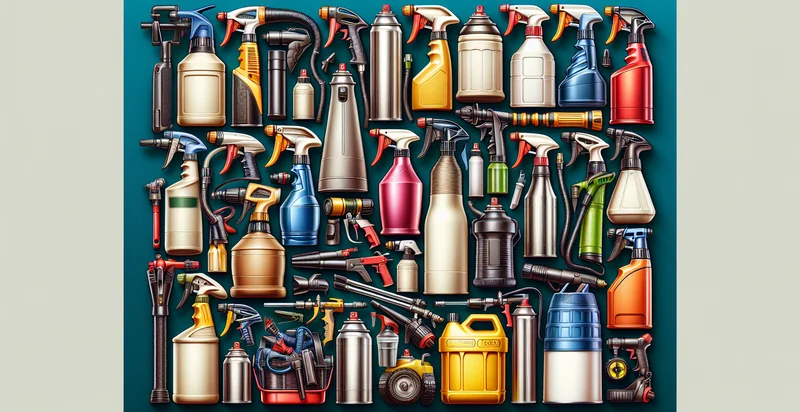Identify sprayer type
using AI
Below is a free classifier to identify sprayer type. Just upload your image, and our AI will predict what type of sprayer it is - in just seconds.

Contact us for API access
Or, use Nyckel to build highly-accurate custom classifiers in just minutes. No PhD required.
Get started
import nyckel
credentials = nyckel.Credentials("YOUR_CLIENT_ID", "YOUR_CLIENT_SECRET")
nyckel.invoke("sprayer-type", "your_image_url", credentials)
fetch('https://www.nyckel.com/v1/functions/sprayer-type/invoke', {
method: 'POST',
headers: {
'Authorization': 'Bearer ' + 'YOUR_BEARER_TOKEN',
'Content-Type': 'application/json',
},
body: JSON.stringify(
{"data": "your_image_url"}
)
})
.then(response => response.json())
.then(data => console.log(data));
curl -X POST \
-H "Content-Type: application/json" \
-H "Authorization: Bearer YOUR_BEARER_TOKEN" \
-d '{"data": "your_image_url"}' \
https://www.nyckel.com/v1/functions/sprayer-type/invoke
How this classifier works
To start, upload your image. Our AI tool will then predict what type of sprayer it is.
This pretrained image model uses a Nyckel-created dataset and has 20 labels, including Airless, Atomizer, Automatic, Backpack, Banana, Compression, Cordless, Detail Sprayer, Electric and Gravity Feed.
We'll also show a confidence score (the higher the number, the more confident the AI model is around what type of sprayer it is).
Whether you're just curious or building sprayer type detection into your application, we hope our classifier proves helpful.
Related Classifiers
Need to identify sprayer type at scale?
Get API or Zapier access to this classifier for free. It's perfect for:
- Agricultural Equipment Monitoring: The 'sprayer type' identifier can be integrated into precision agriculture systems to monitor and classify different types of sprayer equipment utilized in crop production. By identifying the specific sprayer type in use, farmers can optimize their application techniques, track usage, and evaluate the effectiveness of their spraying methods.
- Automated Quality Control in Manufacturing: In manufacturing facilities that produce agricultural sprayers, the identifier can be used to ensure that products are correctly categorized and tested based on their specific type. This functionality can enhance quality assurance procedures, helping manufacturers reduce errors and improve product reliability.
- Supply Chain Optimization: Retailers and distributors can utilize the sprayer type identifier to better manage inventory and fulfill customer orders based on demand for specific sprayer models. This use case can help streamline supply chain operations, reduce excess inventory, and ensure timely delivery of the right products to customers.
- Maintenance Scheduling: Service providers can leverage the identifier to schedule maintenance and repairs based on the specific type of sprayer being used by clients. By tailoring service schedules, providers can improve equipment longevity and enhance customer satisfaction with timely service.
- Market Analysis and Trend Prediction: Marketing teams can use the 'sprayer type' identifier to collect data on the popularity of different sprayer types in the market. This information can be analyzed to predict upcoming trends, inform product development strategies, and tailor marketing campaigns to better meet customer needs.
- Compliance and Regulatory Reporting: Agricultural operations can employ the identifier to ensure compliance with regional regulations regarding the use of specific sprayer types. By maintaining accurate records of the types of equipment used, companies can easily generate reports for regulatory agencies and minimize the risk of non-compliance fines.
- Training and Education: Agricultural extension services and training programs can use the identifier to develop targeted educational materials focused on the proper use of different sprayer types. This helps ensure that operators are properly trained and informed, promoting safer and more effective pesticide and fertilizer applications in farming practices.


